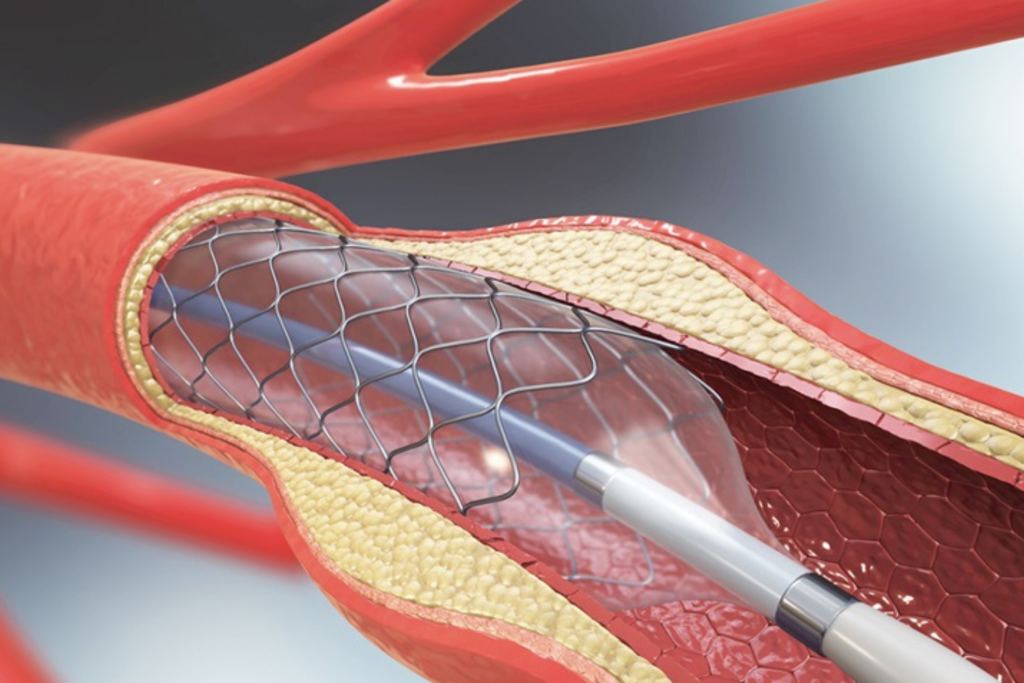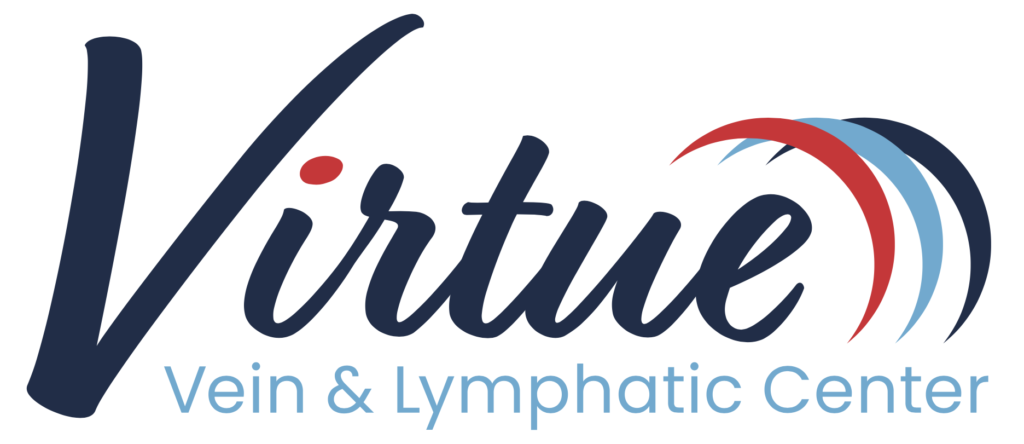Renal Artery Stenosis Treatments in St. Louis, MO
Feel Good About Your Legs Again
Virtue Vein & Lymphatic Center
At Virtue Vein & Lymphatic Center, we are dedicated to providing comprehensive and advanced treatment options for Renal Artery Stenosis (RAS). Our experienced team in St. Louis, MO, offers cutting-edge diagnostic tools and a range of treatment options, from minimally invasive procedures to surgical interventions, ensuring the best care for our patients.
What is Renal Artery Stenosis?
Renal artery stenosis, also called renal artery disease, is a condition in which the arteries leading to the kidneys become narrowed or blocked with fatty deposits and/or plaque. This buildup happens over time with age, and can cause high-blood pressure. It’s important to diagnose and treat renal artery stenosis quickly because when the kidneys do not have proper blood flow, they’re unable to remove waste and fluids from the body, which can lead to kidney failure.
Why Choose Virtue Vein & Lymphatic Center?
- Expertise and Experience:
Our team of vascular specialists has extensive experience in diagnosing and treating Renal Artery Stenosis. We stay at the forefront of medical advancements to provide the best care possible.
- Comprehensive Care:
We offer a full spectrum of treatments, from medication management to advanced surgical procedures, ensuring that each patient receives personalized care tailored to their specific condition.
- State-of-the-Art Technology:
Our facility is equipped with the latest diagnostic and treatment technologies, allowing us to deliver precise and effective care.
- Patient-Centered Approach:
We prioritize our patients' comfort and well-being, providing compassionate care and support throughout the treatment process. Our goal is to improve your quality of life and ensure the best possible outcomes.
Symptoms of Renal Artery Stenosis
- Change in urine output
- High blood pressure,
especially at a young age - Swelling in face, ankles or feet
- Darkening skin
- Muscle cramps
- Fatigue
- Sudden weight loss
- Nausea and vomiting
- Reduced kidney
- Chronic kidney disease
- Fluid retention leading to swelling in the legs
- Heart failure symptoms in severe cases
Diagnostic
Approach
- Doppler Ultrasound: Uses sound waves to visualize blood flow in the renal arteries.
- CT Angiography: Provides detailed images of the blood vessels.
- MRI Angiography: Uses magnetic fields and radio waves to create images of the blood vessels.
- Renal Arteriography: An invasive test where contrast dye is injected into the renal arteries to visualize blockages.
Treatment Options for Renal Artery Stenosis
We offer a comprehensive range of treatment options for Renal Artery Stenosis, tailored to meet the specific needs of each patient. Our treatment options include:
Drug Therapy
Medication is often the first line of treatment for Renal Artery Stenosis. The goal is to dilate or expand the renal arteries, improving blood flow to the kidneys and controlling blood pressure. Common medications include:- ACE Inhibitors and ARBs: Help relax blood vessels and reduce blood pressure.
- Calcium Channel Blockers: Prevent calcium from entering cells of the heart and blood vessel walls, thus lowering blood pressure.
- Diuretics: Help reduce fluid buildup by increasing urine output.
Angioplasty
Angioplasty is a minimally invasive procedure designed to open narrowed or blocked renal arteries. During the procedure:
- A catheter with a small balloon at the tip is inserted into the narrowed artery.
- The balloon is inflated to widen the artery and improve blood flow.
- In some cases, a stent (a small mesh tube) is placed in the artery to keep it open.
Angioplasty offers a quicker recovery time compared to surgery and is highly effective in relieving symptoms and improving kidney function.
Surgical Treatments
For patients who require surgical intervention, Virtue Vein & Lymphatic Center offers two advanced surgical options:
- Renal artery endarterectomy involves physically removing the plaque buildup from the artery. This procedure is suitable for patients with localized plaque buildup.
- Renal artery bypass is performed when the blockage is extensive and cannot be treated with angioplasty or endarterectomy.

Uncontrolled High Blood Pressure May Be From Renal Artery Disease
We’re able to diagnose it in one office visit, and provide treatment that works for your condition and lifestyle.
Get Treated Sooner
If you are experiencing symptoms of Renal Artery Stenosis or have been diagnosed with this condition, don't wait to seek treatment. Contact Virtue Vein & Lymphatic Center today to schedule a consultation. Our team is here to provide you with the expert care you need to manage your condition and improve your health.
We are highly specialized, with seven treatment locations in the St. Louis area, we’re able to schedule your exam and treatment much sooner than other facilities. Call us at 314-849-0923 or complete this contact form to get started.
Schedule a Consultation
What To Expect
Consultation
We will do a comprehensive exam, including a renal ultrasound, to diagnose your condition.
Procedures
Depending upon the severity of your condition, if you have renal artery stenosis, we’ll prescribe medications, or schedule you for angioplasty or surgery.
Recovery
You’ll have 1-2 hours of recovery, and afterward, you may experience mild pain for 2-3 days, which you can treat with over-the-counter pain medication. You’ll be able to resume normal activity in 5-7 days.

"No More Pain"
MaryAnn R.

"I Walked 2 Miles the Next Day!"
Shirley M.

"They Listen Very Well!"
Jeff K.

"Very Knowledgable!"
Happy Patient

"My Leg is Feeling So Much Better!"
Marlene G.
Renal Artery Stenosis FAQ
Anyone can develop renal artery disease, but risk factors are:
- age over 50
- high cholesterol
- obesity
- inactive
- tobacco use
- family history of heart disease
- diabetes
Yes. We will pre-certify any procedure or test prior to your appointment time to ensure it is a covered benefit through your plan.
You can expect mild pain after angioplasty/stenting, or surgery, which can be treated with over-the-counter pain medication.
If we stent the left renal artery the same thing could potentially happen to the right renal artery, so therefore if symptoms return this could be the cause. The artery that previously had a stent placed has a chance to re-narrow despite stent placement, and thus renal artery disease could return.
One of the best ways to prevent renal artery stenosis is to stop smoking. The chemicals in cigarettes damage blood cells and vessels and increase the risk of plaque buildup in the arteries.

